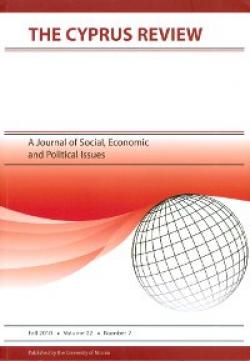The Cyprus Conflict and the Ambiguous Effects of Europeanization

The traditional literature on Europeanization conceptualised the phenomenon as a onesided socialisation process in which EU rules, norms and policies trickled down to member states. This was especially true for new member states. In the case of Cyprus, this interpretation has been particularly obvious, and not only among academics. Among politicians as well there was a view, even after the Annan Plan had failed, that Cyprus could be socialised into a particular mode of ‘European thinking’, much like Greece had experienced over the decades of its membership, which would allow for a solution to the conflict in the medium- to long-term. While it is empirically too early to say whether this view was right or wrong, the present signs are far from encouraging, and may even point in the direction of a reverse socialisation effect, whereby several member states appear to have internalised the logic of the Republic of Cyprus in its approach towards Turkey’s accession negotiations. Indeed the fact that almost half of the substantive chapters in Turkey’s accession negotiations have been blocked due to the Cyprus impasse cannot be viewed as being the responsibility of the Republic of Cyprus alone, but rather of other – often Turkey-sceptic – member states that have been willingly socialised into accepting the Republic’s discourse over the link between the conflict and Turkey’s accession. At the same time, the one-sided, top-down version of Europeanization has come under intense theoretical debate, and authors increasingly stress the ambiguous nature of Europeanization. In this article we will review this debate in order to demonstrate that the integration process did have an impact on Cyprus, but that this impact changed the political terms of the debate without imposing a particular way forward towards conflict transformation. It has enabled political actors to alter and strengthen their arguments both in favour and against a solution and allowed the Republic of Cyprus to influence the EU’s stance towards the conflict. This makes the Cyprus conflict a prime example to warn against unidirectional conceptualisations of Europeanization, whether in academia or politics.
Keywords: Europeanization, EU-ization, Cyprus conflict, Cypriotization, Turkey, accession negotiations, conflict transformation, socialisation
-
Dati bibliografici
in The Cyprus Review, Vol. 22, No. 2 (Fall 2010), p. 175-186 [Special issue: The State of Cyprus: Fifty Years After Independence, edited by Costas M. Costantinou] -
ISBN/ISSN/DOI:
1015-2881
Introduction: The European Union and Change in Cyprus
The Traditional Conceptualisation of Europeanization
Cypriot Expectations
Revisiting the Concept of Europeanisation
Who is ‘Europeanizing’?
Cyprus and the Struggle over ‘Europe’
Conclusion
References



